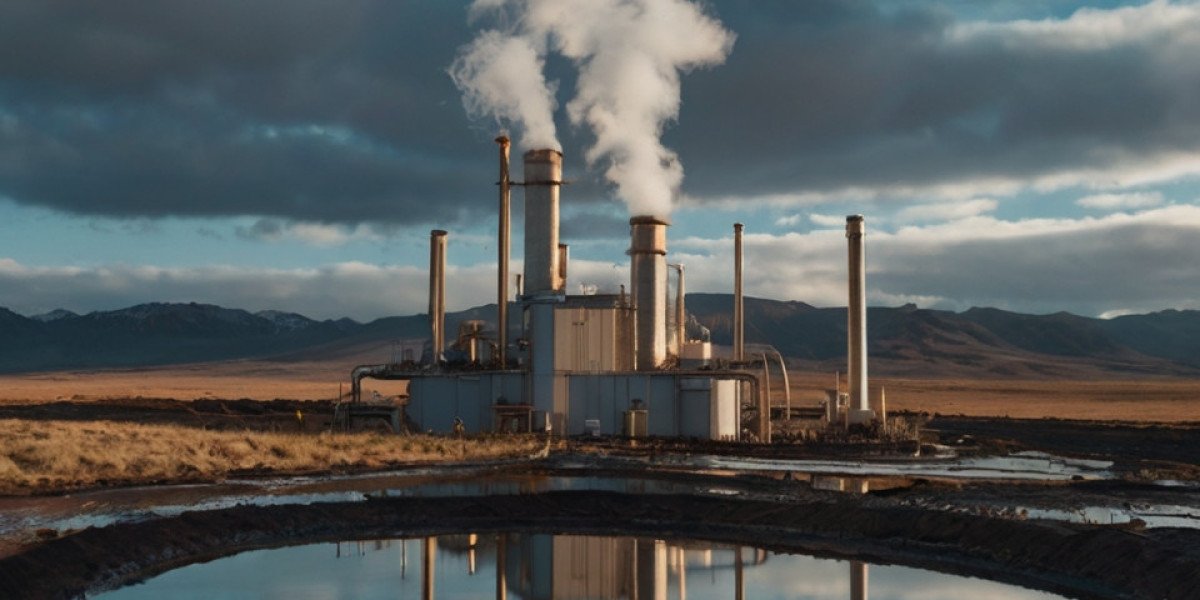The Indonesia Geothermal Energy Market is expected to expand significantly by 2031, driven by the country’s abundant geothermal resources and the growing need for renewable energy solutions. With over 28 gigawatts of untapped geothermal potential, Indonesia is poised to become a global leader in this sector. By focusing on sustainable energy production, Indonesia aims to meet its ambitious climate and energy goals over the next decade.
Expansion of Geothermal Capacity
Indonesia currently ranks second in the world for geothermal energy production, and the country is planning to boost its geothermal capacity even further. As of 2021, the installed geothermal capacity stood at around 2,300 megawatts (MW), with the government aiming to increase this to over 9,000 MW by 2031. This expansion aligns with Indonesia’s broader goal of reducing its dependence on fossil fuels and increasing the share of renewables in its energy mix.
Several large-scale geothermal projects are in the pipeline, including expansions of existing facilities such as the Wayang Windu and Sarulla power plants. New projects in lesser-explored regions are also being developed to tap into the country’s vast geothermal resources. The success of these projects will largely depend on continued investment and the effective implementation of government policies.
Policy Support and Investment
The Indonesian government has been proactive in creating a favorable environment for geothermal energy development. Various financial incentives, such as tax holidays and feed-in tariffs, have been introduced to attract investors to the Indonesia Geothermal Energy Market. Simplifying the regulatory framework and fast-tracking the approval process for geothermal projects are other measures the government has taken to ensure timely project execution.
By 2031, the influx of both domestic and foreign investments is expected to accelerate geothermal energy developments across the country. International financial institutions, along with private investors, have shown increasing interest in backing geothermal projects in Indonesia. With such investment momentum, Indonesia is on track to become a global powerhouse in geothermal energy production.
Technological Advancements
The role of technology in the geothermal energy sector is crucial for improving efficiency and reducing operational costs. Recent advancements in drilling technologies, reservoir management, and energy storage are transforming the landscape of geothermal power generation. Enhanced geothermal systems (EGS), for example, allow for the development of geothermal resources in previously inaccessible areas, broadening the scope of viable projects.
Another emerging trend is the integration of digital technologies such as data analytics and artificial intelligence (AI) into geothermal operations. These technologies are enabling better reservoir management and predictive maintenance, resulting in more efficient energy production. By 2031, it is expected that technological innovations will play an even more significant role in optimizing geothermal plants across Indonesia.
Environmental and Social Impacts
Geothermal energy is often considered one of the cleanest and most reliable renewable energy sources. It generates minimal greenhouse gas emissions compared to coal and natural gas, making it a vital part of Indonesia’s strategy to combat climate change. As the Indonesia Geothermal Energy Market expands, its contribution to reducing the country’s carbon emissions will become increasingly important.
Additionally, geothermal energy projects provide substantial benefits to local communities. These include job creation, infrastructure development, and improved access to electricity in remote areas. By actively engaging with local populations and ensuring that they reap the benefits of geothermal projects, developers can build strong community support and foster long-term project success.
Challenges and Risks
Despite the optimistic outlook, the Indonesia Geothermal Energy Market faces several challenges that need to be addressed. The high upfront costs of geothermal exploration and drilling remain a significant barrier to entry for investors. Geothermal projects also face geological uncertainties that can lead to delays and increased costs during the development phase.
Furthermore, some local communities are concerned about the environmental impacts of geothermal projects, such as the potential for land subsidence and water contamination. Transparent communication and environmental safeguards are necessary to ensure that these concerns are addressed.
The Future Outlook
By 2031, Indonesia is expected to be a global leader in geothermal energy production, contributing significantly to both its domestic energy supply and global renewable energy efforts. With strong policy support, continued investment, and technological innovation, the Indonesia Geothermal Energy Market will play a crucial role in shaping the country’s energy future.
Indonesia's geothermal expansion will not only enhance energy security but also contribute to the country’s commitment to the Paris Agreement and its goal of reducing carbon emissions. As the nation continues to develop its geothermal resources, it stands to become a model for sustainable energy production in the region.
Conclusion
The Indonesia Geothermal Energy Market is poised for rapid growth by 2031, with strong government support, increasing investments, and technological innovations driving its expansion. Despite challenges related to project costs and environmental concerns, geothermal energy offers a reliable and sustainable solution for Indonesia’s growing energy needs. As the country taps deeper into its geothermal potential, it is set to play a pivotal role in the global transition to cleaner, renewable energy sources.








